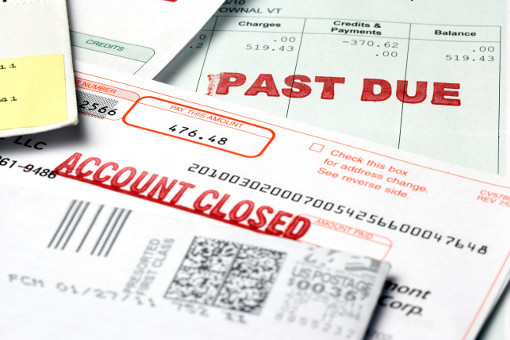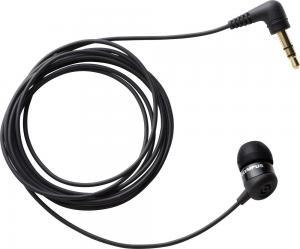Harassed By A Debt Collector? We Can Help.
FREE CASE EVALUATION
CALL (612) 379-8800
DISCLAIMER. The information on this form is not legal advice and no attorney client relationship is created by completing it. That relationship will only be formed after we have both signed a written retainer agreement. We may associate with other law firms to provide you with legal services. By completing this form, you expressly consent to sharing your information with those firms and their staffs to contact you directly.
Truth
Debt collectors cannot lie to you, mislead you, or make false statements to you. They must be truthful.
Fairness
Debt collectors have to be fair to you. That means no calls to employers, neighbors, family or friends.
Respect
Collectors have to treat you with dignity and respect. No yelling, insulting, or abuse. It’s all illegal.
What kind of clients do you work with?
- Threatening lawsuits, garnishment, liens, or arrest for not paying a bill
- Calling your family, friends, neighbors or employers to collect a debt
- Leaving abusive phone messages
- Insulting, yelling or swearing at you
- Calling your workplace after telling the collector not to call you there
- Lying, threatening, or otherwise harassing you in any way
If you have suffered from any of these abusive bill collection practices, you may be entitled to compensation. We can help any consumer who is currently in collections, or has suffered from collection harassment. Call us today to speak with an attorney about your collection harassment case.
How do you get paid your fees?
How long will my case take?
What can I do to make my case successful?
- Save copies of all letters and notices from collection agencies
- Save all phone messages and voice mails- this is very important!
- Take screen shots or pictures of each caller ID screen showing a debt collection and/or robo-call
- Make note of your conversations with these bill collectors
- Call us to help you recover your damages
You Have A Right To Sue A Collector
As a consumer, you are entitled to file a lawsuit against any debt collector who violates your rights under the FDCPA. In short, the FDCPA allows a consumer to recover their actual damages, statutory damages of up to $1,000 and their attorney’s fees and costs. Debt collectors who violate the law have a lot at stake: Increased insurance rates, decreased collection rates, potential governmental regulatory action, and the spiraling costs of defending a lawsuit for their illegal conduct.
The deck is stacked against consumers with sophisticated debt collection tactics. As a consumer, you should not hesitate to shield yourself from these sharp practices and exercise your rights under the FDCPA. Our law firm has the experience, resources and ability to to zealously represent you in your FDCPA action against any debt collector. We file federal civil lawsuits against debt collectors who violate any state or federal law. The FDCPA prohibits any collection efforts that violates any law. That means that amongst other things, a collector must tell the truth, be respectful to you, and cease communicating with you when you have a lawyer. Our firm can and will make illegal collection activity stop dead in its tracks.

Your Rights Under The Fair Debt Collection Practices Act (FDCPA)
- The amount of the debt.
- The name of the creditor to whom the debt is owed.
- A statement that unless you, within thirty days after receipt of the notice, dispute the validity of the debt, or any portion of it, the debt will be assumed to be valid by the debt collector.
- A statement that if you notify the debt collector in writing within the thirty-day period that the debt, or any portion thereof, is disputed, the debt collector will obtain verification of the debt or a copy of a judgment against you and a copy of such verification or judgment will be mailed to the consumer by the debt collector.
- A statement that, upon the consumer’s written request within the thirty-day period, the debt collector will provide the consumer with the name and address of the original creditor, if different from the current creditor.
- Finally, a statement that the communication is from a debt collector attempting to collect a debt and that any information obtained will be used for that purpose.
- Every debt collector who tries to collect your debt must provide their own 30-day validation notice, even if a previous debt collector has already given such notice.
Rights While Debt Under Dispute. If you dispute a debt in writing within the 30-day validation period, a debt collector cannot continue to collect on the debt until they have sent you proof of the debt or a copy of the judgment.
- Use threats of violence or harm to the person, property, or reputation.
- Advertise your debt or publish a list of consumers who refuse to pay their debts, except to a credit bureaus.
- Use obscene or profane language.
- Repeatedly use the telephone to annoy someone or ring the telephone constantly.
- Call people without identifying themselves.
False Statements Prohibited. A debt collector may not use any false statements when trying to collect a debt. This includes:
- Falsely implying that they are an attorney or government representative.
- Falsely implying that you have committed a crime by not paying a debt.
- Falsely represent that they operate or work for a credit bureau.
- Misrepresent the character, amount, or legal status of the debt.
- Indicate that papers being sent are legal papers when they are not.
- Indicate that papers being sent are not legal papers when they are.
Threats Prohibited. A debt collector may not use threats when trying to collect a debt. This includes threats like the following:
- You will be arrested if you do not pay your debt.
- They will seize, garnish, attach, or sell your property or wages, unless the collection agency or the creditor intends to do so and they have the right to do so.
- Take any actions against you which are illegal.
- Violate any law in an effort to collect a debt.
Deception Prohibited. A debt collector may not use deception when trying to collect a debt. This includes deceptions like the following:
- Send you anything that looks like an official document from a court or government agency when it is not. Give false credit information about you to anyone. Use a fake or false name, unless that name is allowed by state law and properly registered with the state, if required.
Unfairness Prohibited. A debt collector may not treat you unfairly in attempting to collect a debt. This includes unfairness like the following:
- Collect any amount greater than your debt, unless allowed by law.
- Deposit a post-dated check more than 5 days before the date on the check, without giving you notice of when they intend to deposit it.
- Solicit a post-dated in order threaten criminal prosecution or threaten to cash the check early.
- Take or threaten to take your property unless this can be done legally, including wrongfully repossessing your vehicle.
Payments on Multiple Debts. A debt collector must apply you payments on multiple debts in the order you direct. A debt collector is prohibited from applying any payments you send in to debts that you believe you do not owe.
Recording Collection Calls
Step 1: Make Sure It's Legal To Record Phone Calls
· It is a crime in the following states to record telephone calls without the consent of ALL parties. Do not record any telephone call originating from, entering into, or emanating out of these 12 states, without the consent of all parties to the communications which was obtained PRIOR to making the recording:
California - Connecticut - Florida - Illinois - Massachusetts - Maryland
Michigan - Montana - Nevada - New Hampshire - Pennsylvania - Washington
· Know what city and state the calls are coming from, and or what city and state you're returning a call to. If you cannot determine the physical location of the collection calls, then DO NOT RECORD THEM.
· If you cannot record, simply use your recorder to make a diary immediately after the call of what was said during the call. Be sure to note the date and time of the call at the beginning of your diary entry.
· Voice-mails and answering machine messages left for you may always be recorded. This is a another great use of a digital recorder and will allow you to preserve critical evidence in your case.
· Generally speaking, it makes no difference that your state allows recording if the other state the collector is in prohibits it. Always make sure both states allow it. This information is deemed reliable but not guaranteed. Do your own legal research before making recordings of any communications over which not all of the parties have consented.
· It is a federal crime to record any conversation when you are not a party to it. This is known as wiretapping and the civil and criminal penalties for this conduct are huge. Don't ever do it.
· Click here to go to www.rcfp.org and read "Can We Tape? - A Practical Guide to Taping Phone Calls and In-Person Conversations in the 50 States and D.C." This is an excellent guide to current state laws regarding the recording of collection calls throughout the United States. Always verify this information with a competent attorney before you record, though.
Step 2: Get the proper equipment and start documenting your collection calls
We recommend the new Sony digital recorder for recording collection calls. It's awesome and it instantly records directly to MP3 files. It is Mac and PC compatible. Sony Digital Voice Recorder. Model numbers vary, but be sure to get one with a USB hot-shoe port so that you can easily download the recordings to your computer.
 Sony Digital Recorder with USB (USB is an absolute must) available on Amazon for about $58.
Sony Digital Recorder with USB (USB is an absolute must) available on Amazon for about $58.
You'll need a microphone for the recorder. We recommend the Olympus Mini Telephone Recording Device. It works with absolutely any phone, including all types of cell phones. This is the in-ear microphone tap which plugs into the Sony digital recorder. The recording device resembles an earpiece and is worn in-ear. Trust us, it works great! Model: TP-8 or later.

Olympus T-8 Earpiece Microphone Available on Amazon for about $14.
Experience
I have decades of federal consumer rights litigation experience since 1996. There is no tougher place in the world to litigate than in United States Federal District Court. You'll be glad that your lawyer has both the knowledge of the Court, and the success to back it up.
Innovation
I've professionally trained thousands of lawyers all over the country on how to sue debt collectors. I gather all of the best ideas from my legal seminars and bring them back to my law practice. Because I've taught thousands of lawyers in all 50 States, my reputation is second-to-none.
Technology
I run an all digital, paperless, law office. I can instantly access any document that has ever been created in your legal file from a secure cloud. Quickly and efficiently. Paper is scanned, optically-character-recognized and fully word-searchable. That makes me effective for you and tough for our opponents.
Communication
As a consumer lawyer, I pride myself in answering my own phone and email. If I'm available to talk, we will talk. Email is always a great way for you to reach me and I make every effort to get back to you in 24 hours or less. I don't avoid clients. I serve them.



